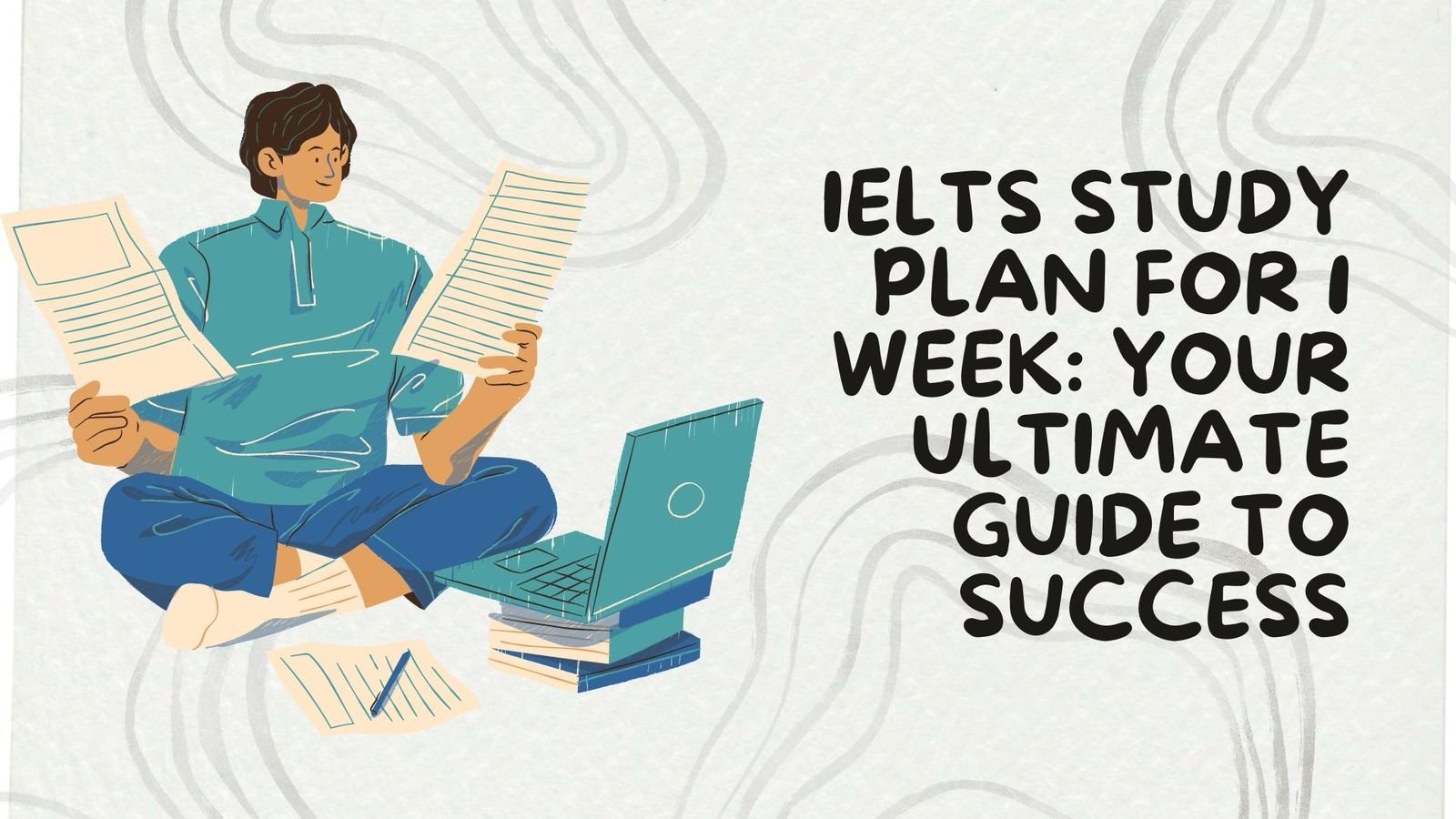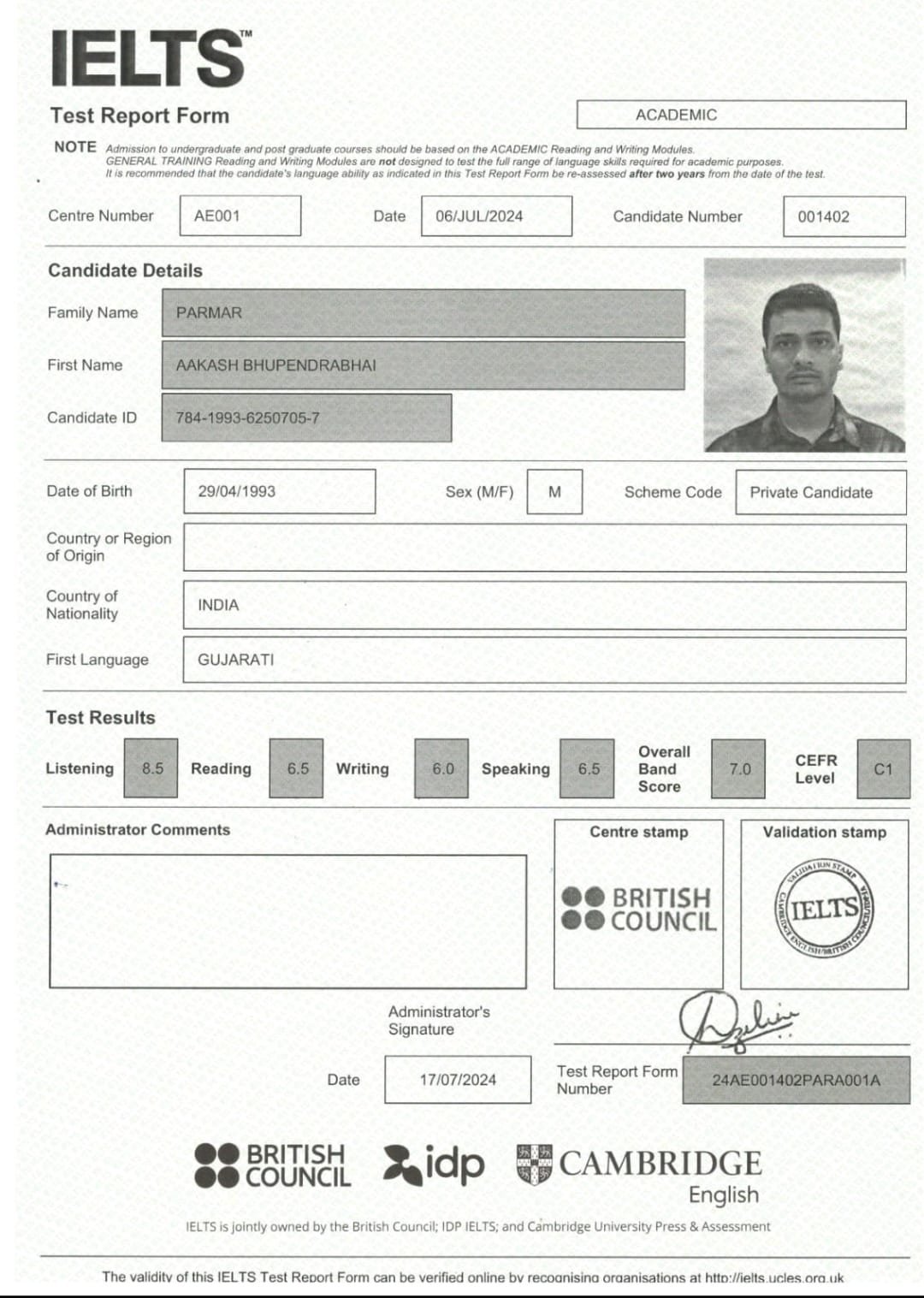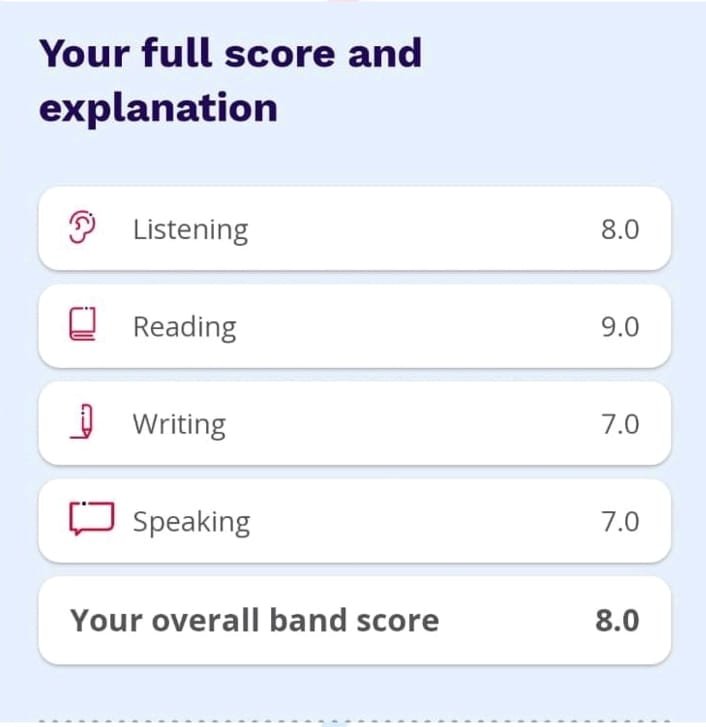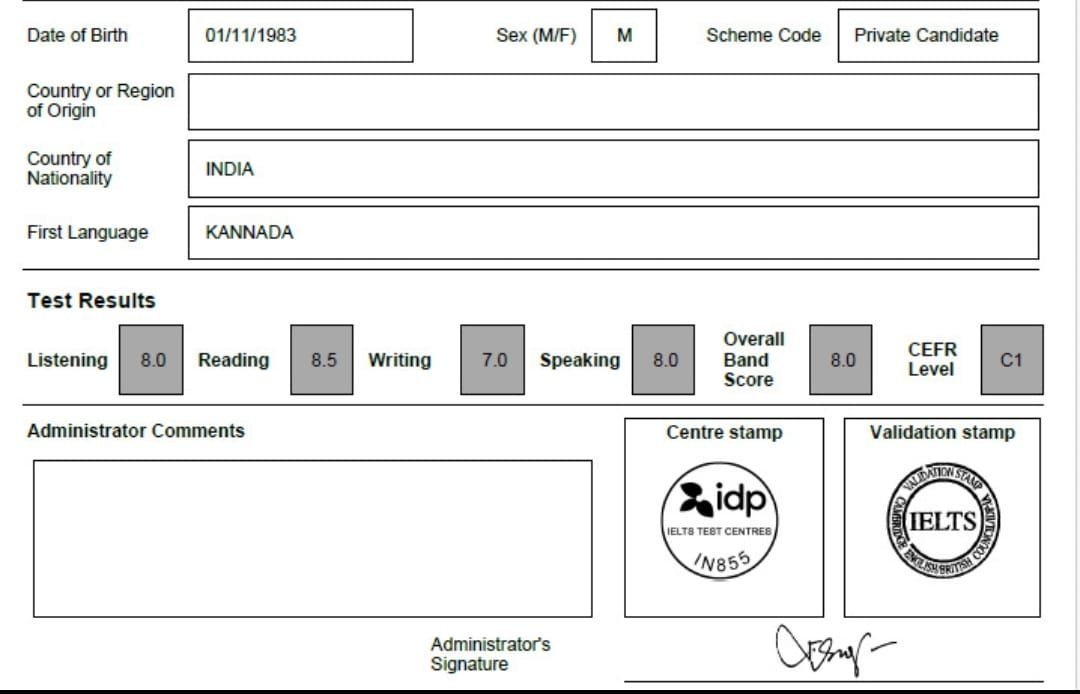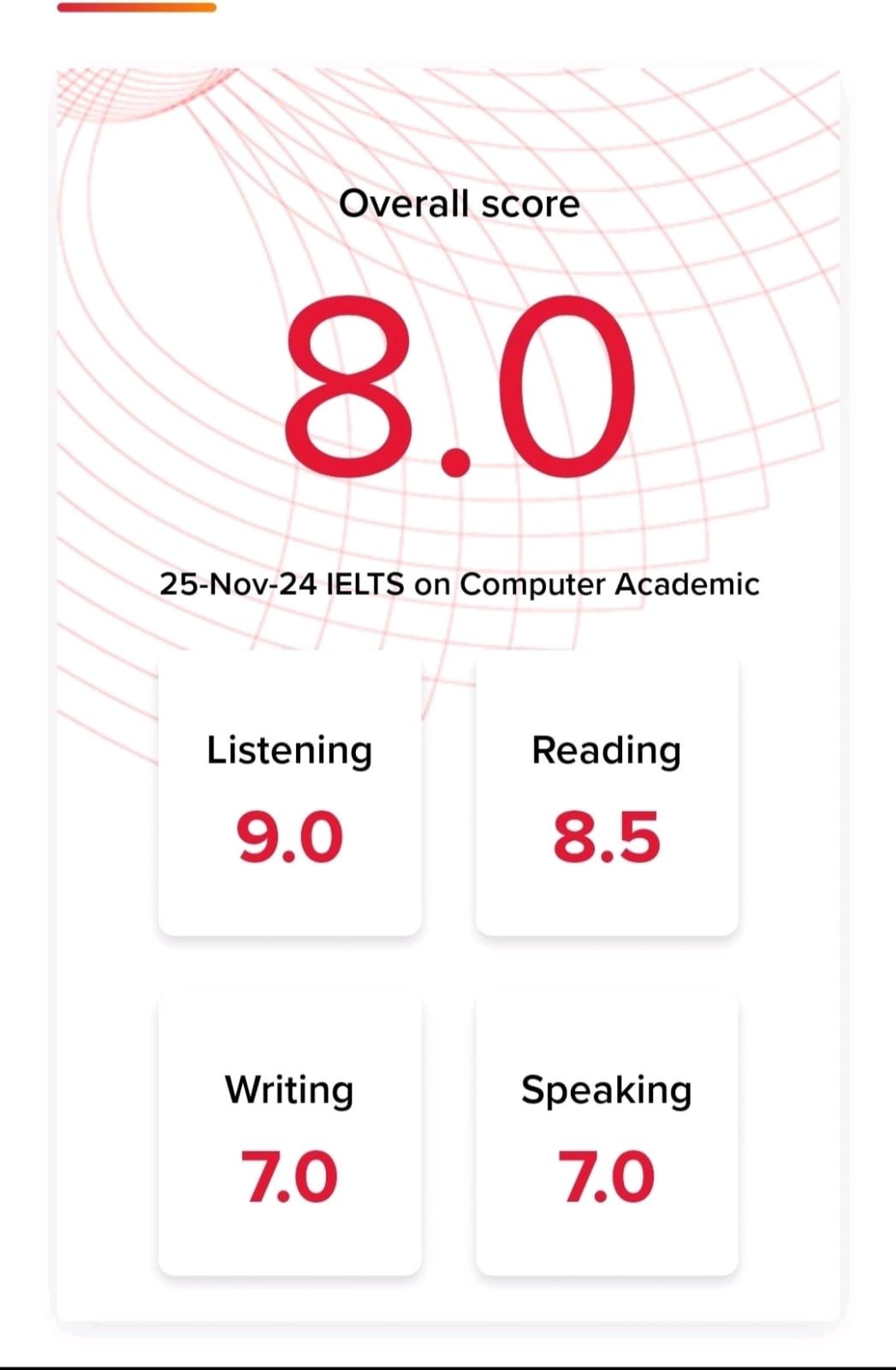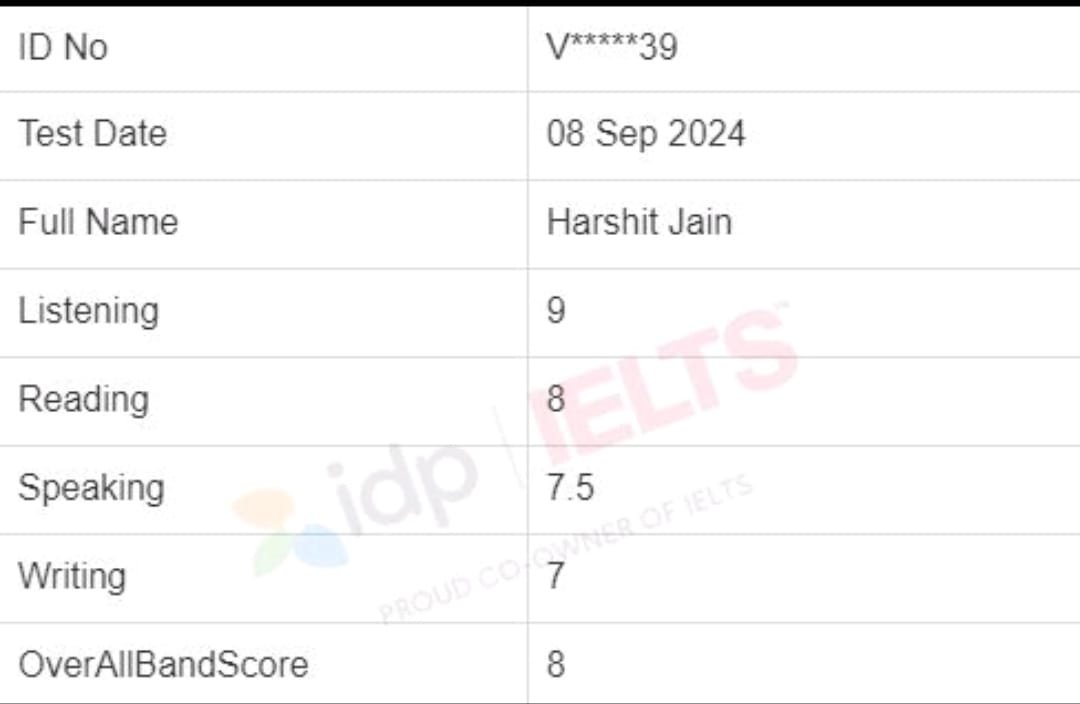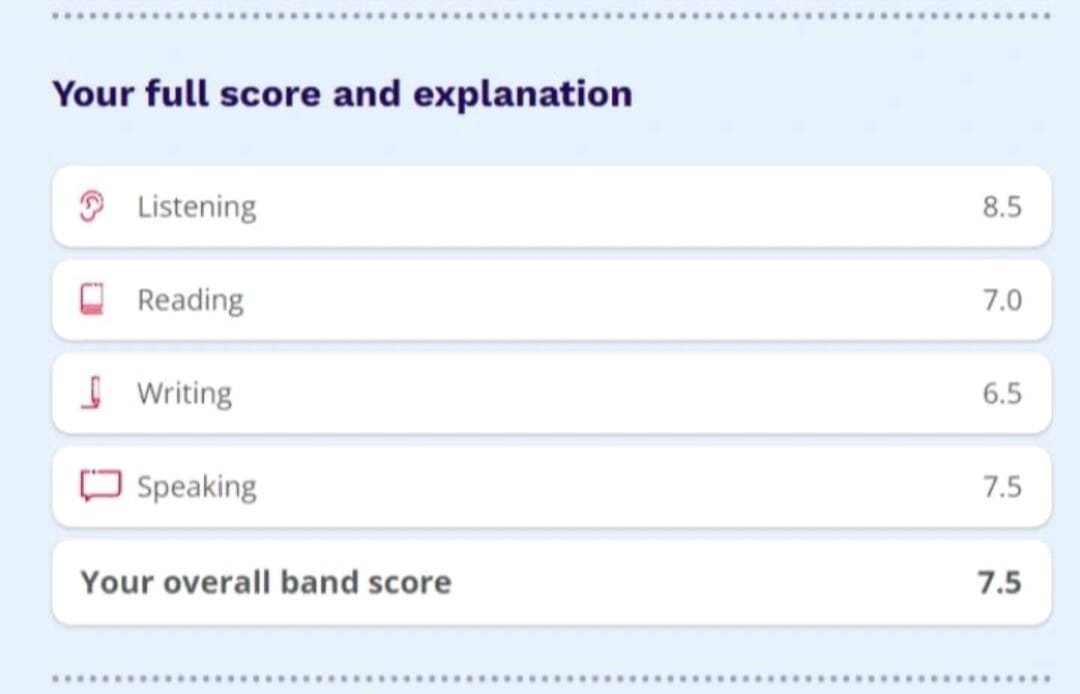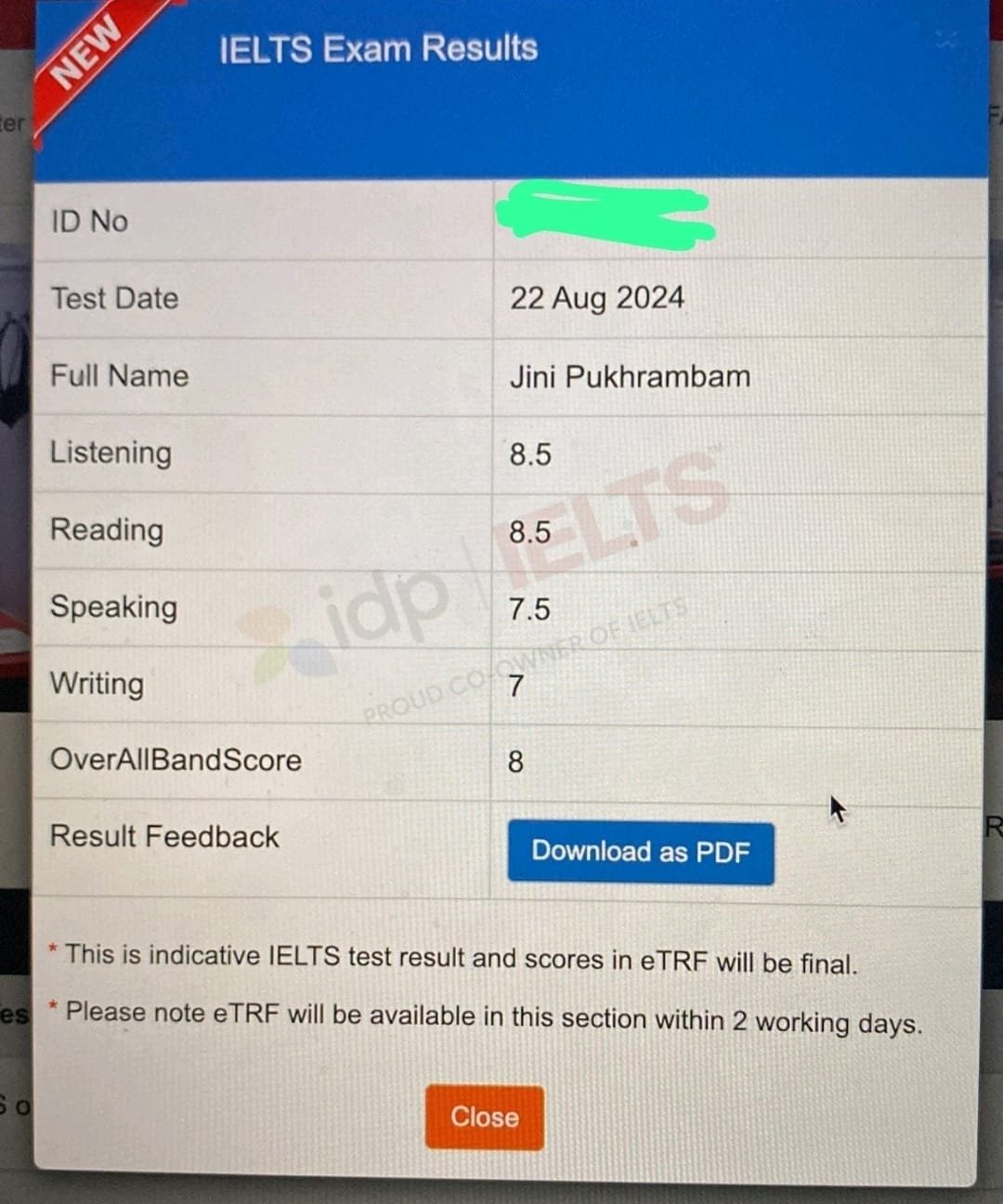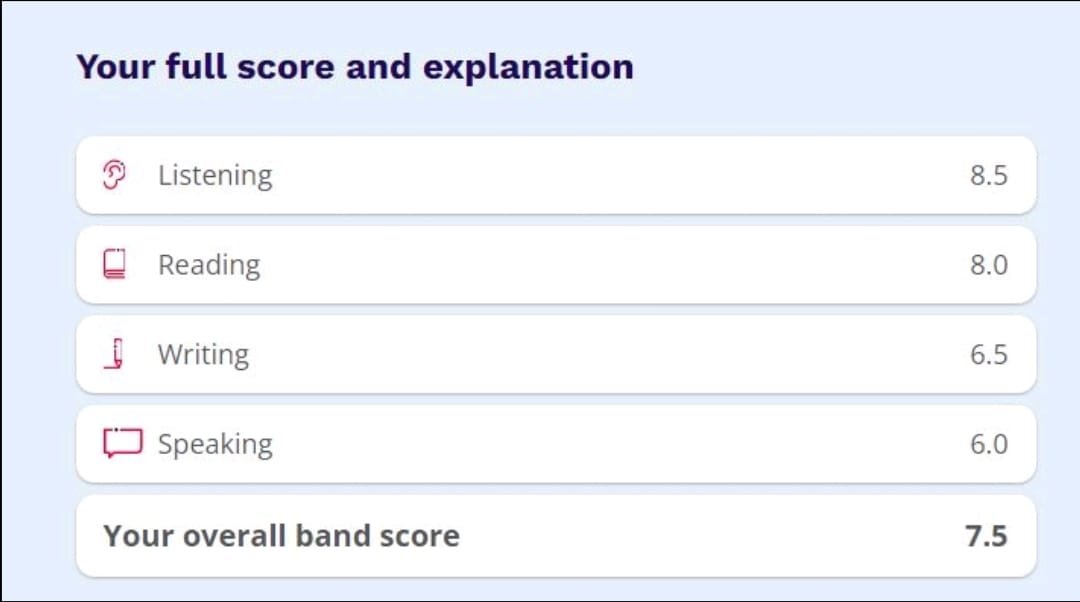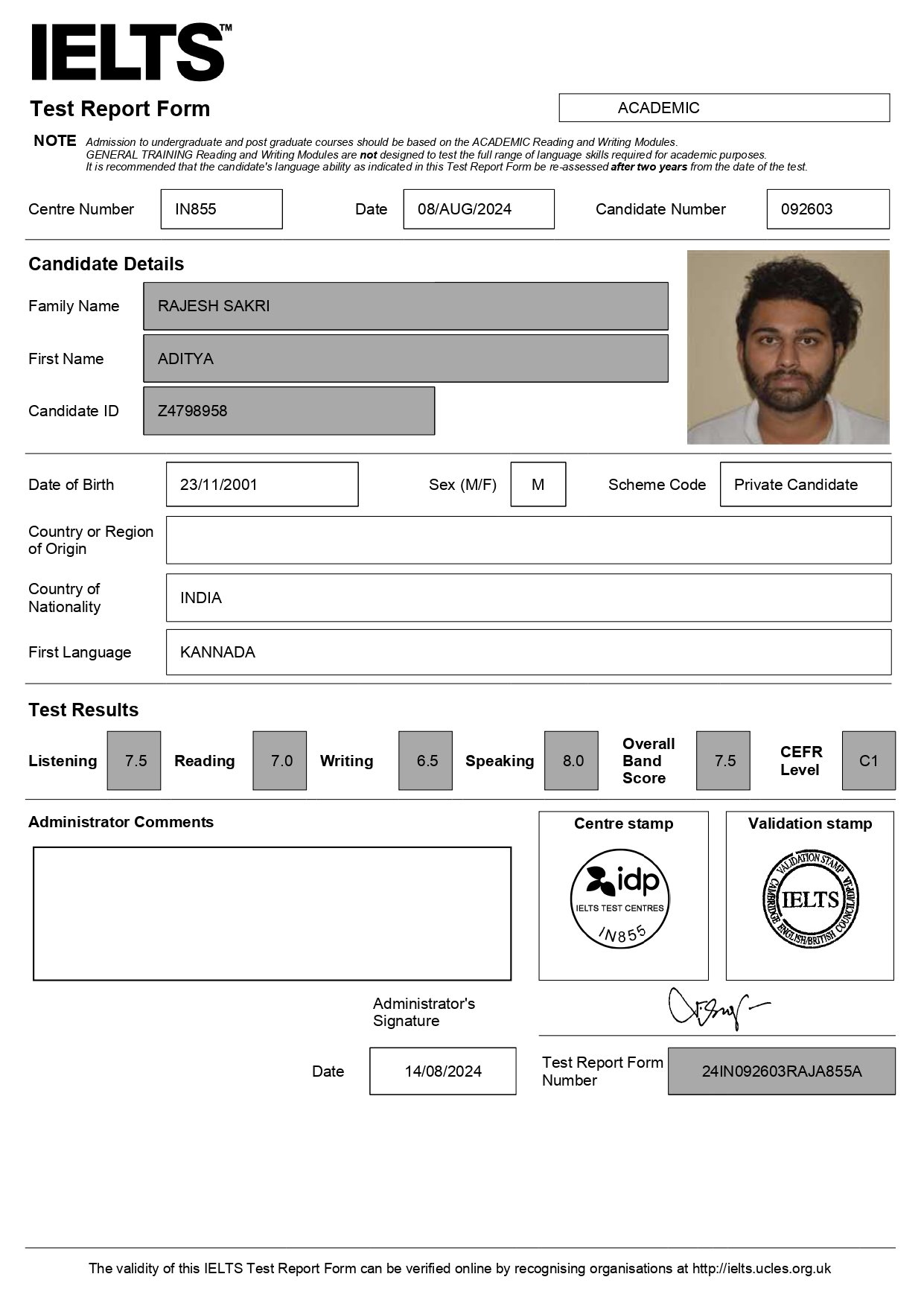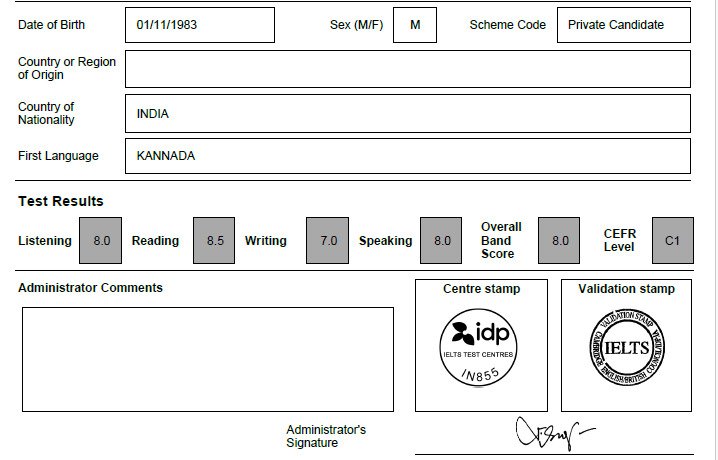
As an IELTS coach, I know how overwhelming it can feel to prepare for the test, especially if you’re short on time. Whether you’re preparing for the exam in a week or need a more structured plan, I’m here to help. So, in this blog, I’ll discuss with you, a practical and effective 1-week study plan that can help you to utilize your preparation time to the fullest!
But before we get into the specifics, let me remind you that smart preparation is not about hitting the books hard — it’s about hitting the books smart. So, I’ve also put some links to great resources which I suggest you check to make your study plan even better.
So, without further ado, here is your 1-Week IELTS Study Plan!
Day 1: Familiarize Yourself with the Test Format
Before getting this IELTS preparation, first and foremost, I suggest you understand how the test works. There are four parts of the IELTS: Listening, Reading, Writing and Speaking. Knowing how the test is structured will give you the confidence you need when you sit for the exam because each section comes with its own set of challenges.
What to Do:
Read the IELTS pattern: Get an idea about the kind of questions asked in each section Listening: This section presents recordings to listen to, followed by questions. In the Reading part, you will come across multiple-choice questions; headings matching, and more.
How To Study for the IELTS — Tips & How To StudyTake a free practice test: If you have never done the IELTS before, you need to take a practice so you know what level you are currently at. This will allow you to see where you need to focus more.
Recommended Resource:
If you want to get a better understanding of the test format and each section in detail, join my Free Masterclass. It’s a great guide to everything you need to know about IELTS.
Day 2: Focus on Listening
The IELTS Listening section can be challenging, especially if you’re not accustomed to listening to a range of accents or following along with a recording and answering questions at the same time. But, with a bit of focused practice, you can learn quickly.
What to Do:
The teacher shows how to find the main ideas in audio from IELTS practice recordings. Be attentive is the specific information such as dates, numbers, and names.
Practice IELTS Listening tests: There is plenty of practice available online. Be sure to time yourself as you play the recordings and don’t pause. It will aid you in familiarizing yourself with the tempo of the exam.
Helpful Tool:
Visit my IELTS coaching Online, where I explain specific strategies to help your listening depending on your needs.
Day 3: Work On Your Reading Skills
Any prospective graduate student already knows that the Reading section can be time-consuming and tricky, because of passages that can seem long and dry, and a variety of different question types. You need a good strategy on how to approach this section.
What to Do:
Develop the skill of skimming and scanning: It means that you skim through the passage to understand the overall perspective of the passage and then scan for the information you need.
Multichoice question practice: The Multichoice questions are tough for most students, work on them.
Analyze correct and incorrect answers: Once you finish a practice test, go through the answers and identify the reasons you may have gotten the last few questions wrong. The path to improvement lies in knowing where you went wrong.
Further Support:
If you need something more personalized, I also suggest taking a look at my Prompts Bundles. Includes practice questions and step-by-step solutions for all the sections of the stimulus test (reading sample test questions).
Day 4: Master Writing Tasks
Writing can be one of the most demanding components of the IELTS test, particularly if you do not understand how to organize your essays or how to articulate your thoughts clearly. But with some consistent practice, you can get better at this for sure.
What to Do:
Familiarise yourself with Writing Task 1 and Task 2: In Task 1, you have to summarise information from a graph, chart, or diagram, and in Task 2, you need to write an essay in response to the question or statement given.
Practice Task 1: Aim for accurate descriptions of trends, comparisons, and changes. Practice your skill of distilling into a clear, succinct summary.
Task 2 Practice: You write an outline and then draft your essay. Join up with some friends, review all that voter ID stuff, and to the extent that you can, be active–literally.
Day 5: Refine Your Speaking Skills
This can make some students anxious, but studying regularly will enable you to stand confidently and perform successfully on the Speaking test. The important thing is to be specific in your answers and be ordered in your thoughts.
What to Do:
Know common IELTS speaking topics that come in (Some common topics are: family, travel, education, technology, and hobbies.) You should also practice for fluency in these topics.
Use recorded self-starts: If you record yourself speaking, you will be able to listen to your own voice and find what to improve your speech in terms of pronunciation, fluency, and coherence.
Speaking test simulation: Request a study buddy or IELTS coach for a mutual speaking test. Start to answer people’s questions straight away without mulling them over.
Personalized Coaching:
If you want more Speaking tips tailored to your needs, I offer IELTS Coaching if you want to practice and get feedback in real time.
Day 6: Vocabulary and Grammar Revision
Well, the vocabulary and the grammar you use for both these sections are one of the few other determinants of your scenario in the IELTS. Strong grammar helps your writing and speaking be clear, while a rich vocabulary helps you express your ideas better.
What to Do:
Learn common IELTS vocabulary: Focus on high-frequency words and phrases for common topics related to IELTS. For instance, understand the proper terms for talking about education, technology, and social issues.
Grammar: Know the difference between your and you’re, were and where, and so on.
Helpful Resource:
And, if you want to study more FUN and ACTIONABLE tips and vocabulary techniques for the IELTS exam, read my E-books.
Day 7: Complete a Full Practice Test and Review
You’ve worked hard for the last six days, so now you’re going to make it all come together. By the end of Day 7, you should take a full IELTS exam so that you know where you stand.
What to Do:
Take an entire IELTS practice test: Take a timed test with all four parts — Listening, Reading, Writing, and Speaking.
Check your answers: After finishing the test check your answers to know where do you wrong. Focus especially on what you got wrong or struggled with.
Join a class: If you think your preparation is not working out or you need help in certain sections, you can join and attend a good class.
Additional Help:
So if you have doubts about any areas of your preparation check out my IELTS Coaching and Prompts Bundles you can gain personalized feedback and extra resources to refine your skills in the lead-up to test day!
Final Thoughts
A week might not sound like a long time, but with a solid study plan in place and the best resources at your disposal, it’s more than enough time to improve your score and give yourself a confidence boost. Just know, that you can do it, it will just take time, but be consistent and stick to it every single day.
And remember, I’m by your side every step of the way. However, if you are looking for coaching, practice material, or want to polish your skills feel free to check my Coaching Program, E-books, or my Prompts Bundles. Let me know if you have any questions, and also do check out my Free Masterclass if you are just beginning your IELTS journey.
Best of luck and I know you will do great!

